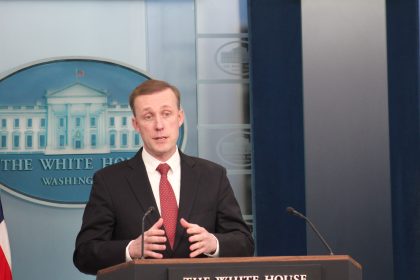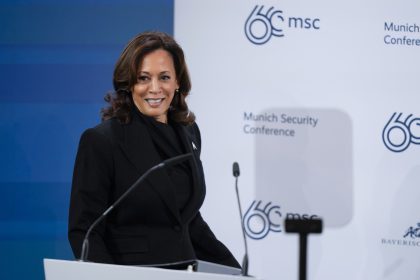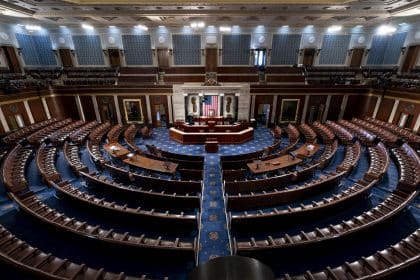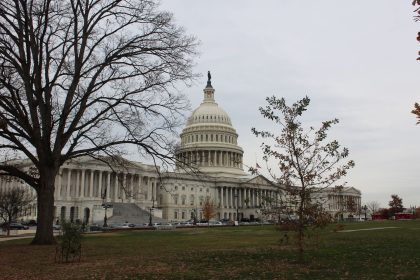Cardin Looks to Establish U.S. Anti-Corruption Policy As National Security Priority
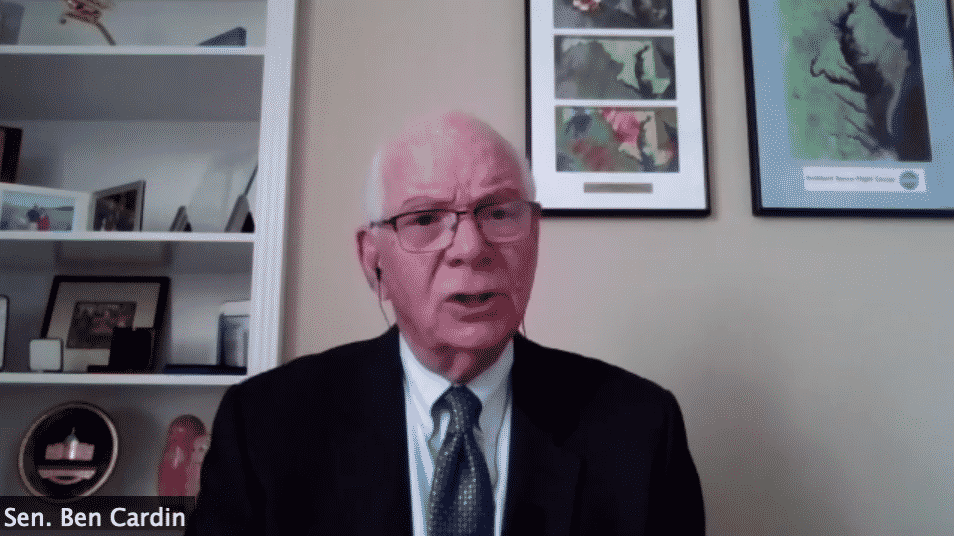
WASHINGTON — Three years ago, the World Economic Forum estimated the global cost of corruption to be at least $2.6 trillion, or 5% of the global gross domestic product.
From illicit finance to bribery and graft, financial crimes have generally been viewed as regulatory issues, but some believe that these, as well as continued attacks on the military, misinformation schemes, and cyberattacks are actually propping up autocratic regimes and encouraging bad actors that seek to weaponize corruption.
Sen. Ben Cardin, D-Md., is among those looking to raise the profile of American anti-corruption efforts by making it a national security priority.
“Corruption is the fuel that allows autocratic regimes to flourish,” Cardin told the Center for American Progress, a public policy research and advocacy organization. “Good governance is a core value that needs to be a core national security priority. Our system of government is under attack and we have to protect it.”
The White House appears to agree, publishing a memorandum in early June designating the fight against corruption as a national security interest as it erodes trust and confidence in democratic institutions, damages competitiveness, and fosters conditions for violent extremism.
“Every country in the world has problems with corruption, but you do need to have a commitment from your leadership to root it out,” Cardin said. “We’ve never had an administration until now that identified it so publicly as a national security issue.”
Cardin credits the urgency of the moment, “of dealing with the influence of corrupt regimes against democratic states,” and the regrettable continuing trend toward less democratic nations in the world for a renewed interest in the global struggle against graft.
“We have seen, unfortunately, corruption grow in democratic states,” Cardin said, citing that vulnerabilities were particularly notable during the COVID-19 health emergency where supply chains were not secure and were subject to bribery and fraud. “We have to invest in the basics to preserve democratic institutions… [and] rule of law is absolutely essential to democracy.”
Earlier this year, Cardin, alongside Sen. Todd Young, R-Ind., introduced a bill requiring the State Department to identify unscrupulous countries as well as rank them with respect to the level of their corruption. If passed, this bill would also establish minimum standards for combating corruption; evaluate foreign persons engaged in grand corruption in the lowest tiered countries for consideration under the Global Magnitsky Human Rights Accountability Act; and designate an anti-corruption point of contact at U.S. diplomatic posts in the two lowest tiered countries.
“I think the U.S. would be rated at the top tier of those fighting corruption, but take a look at some of our institutions — like dark money in elections — and it’s a slippery slope,” Cardin said.
The bill also seeks to provide funds for programs that can help build democratic resiliency.
Cardin believes that having the nation’s anti-corruption efforts codified will ultimately assist with the nation’s diplomatic efforts.
“Separation of powers helps diplomacy,” Cardin insisted, suggesting that it is easier for ambassadors to explain punitive actions, such as sanctions, as matters of policy and to negotiate trade agreements based on good governance and transparency.
“Corruption is a fundamental obstacle to peace, prosperity, and human rights all around the world,” Cardin said. He is persistent in efforts to promote corruption as a national security concern, because, as he said: “When a country backslides, it’s very difficult to get it back on the right track.”

















